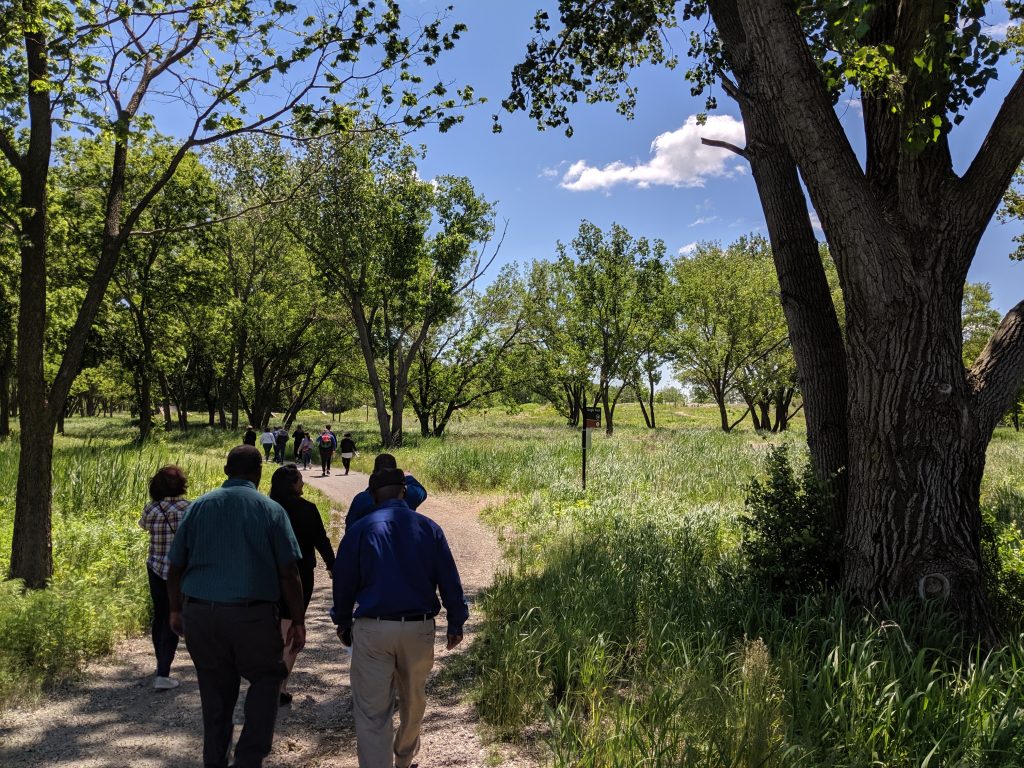Getting around in the communities surrounding Lake Calumet on Chicago’s Far South Side is an enormous challenge without a car.
A lack of public transit options, few bicycle trails, and inadequate pedestrian infrastructure make traveling without a car between communities like Riverdale, Roseland, and Pullman frustrating and often risky. Obstacles like heavy industry, highways, rail tracks, and waterways cut off most of these neighborhoods from neighboring communities.
The good news is that solid ideas have been developed for improving the walking, biking, and transit connections between these places.
Improving these connections would not only boost transportation and recreation options for residents, but also would advance economic development by attracting tourism and connecting people to new commercial centers.
Earlier this month, Active Trans, the Calumet Collaborative, and a group of bicycle, pedestrian, and public transit advocates who live in the communities surrounding Lake Calumet called the Southside Trailblazers hosted elected officials, government agencies, and community groups on a bus tour of the Lake Calumet area.
The tour highlighted five key trail and on-street bicycle and pedestrian connections that, if built, could completely change accessibility for residents on the city’s far South Side and in nearby suburban communities. These are the connections we looked at and discussed:
- 130th Street Side Path: The Riverdale community needs more connections to natural resources and shopping destinations in surrounding neighborhoods. 130th Street is a major thoroughfare for Riverdale but lacks a sidewalk and bike infrastructure. Creating a side path on 130th Street is not just an issue of increasing safety and accessibility, it would help improve the health of Riverdale’s residents and promote economic development in the area.
- The Kensington Trail: As residents of the Far South Side know, there aren’t safe ways for folks to bicycle from large residential neighborhoods like Pullman or Roseland down to Riverdale or the Cal-Sag Trail without having to use heavily-trafficked streets. A connection, sometimes called the Kensington Trail, between those areas would create a crucial link between under-resourced communities to the south, like Riverdale, and shopping destinations and employment hubs to the north near Pullman.
- Lake Calumet Connection: Lake Calumet is a barrier between the historic Pullman neighborhood to the west and Big Marsh Park and the South Deering neighborhood to the east. The Bishop Ford Expressway and active rail lines create additional obstacles for people seeking to travel between these destinations on bike or on foot. The connection across Lake Calumet would help overcome these obstacles by creating a safe walking and biking route over the Bishop Ford Expressway that links to a new trail across the north end of Lake Calumet to Stony Island Avenue and eventually to Big Marsh and points beyond.
- Torrence Avenue Road Diet: Torrence Avenue runs north-south on the east side of Lake Calumet. Torrence is a four-lane road that connects the only two major east-west streets, 103rd and 130th, on the north and south sides of Lake Calumet. Torrence provides an important connection between the community areas of Hegewisch, Riverdale, and the East Side of Chicago. A road diet on Torrence Avenue would allow for on-street biking infrastructure.
- Burnham Greenway Gap: The Burnham Greenway is a fantastic existing trail on the city’s south side, as it runs through the southeastern neighborhoods of the city and goes through southern suburbs, including Calumet City and Lansing, where it connects to the Pennsy Greenway. However, in between the city and southern sections is a 2.5-mile gap. Work on the northern section of the project should begin shortly. However, a bridge over the train tracks near Burnham and Brainard Avenues is necessary to finish the trail and coming to terms with railroad companies is slowing down that process.
Following this trail tour of the Lake Calumet area, the Chicago Tribune published two stories (here and here) about a lack of connectivity in the communities surrounding Lake Calumet.
Want to get involved in supporting Active Trans, the Calumet Collaborative, and the Southside Trailblazers as we work to make these five priority projects a reality? Get in touch with Matt Gomez, Trail Advocacy Manager, at [email protected] or (312) 216-0474.

